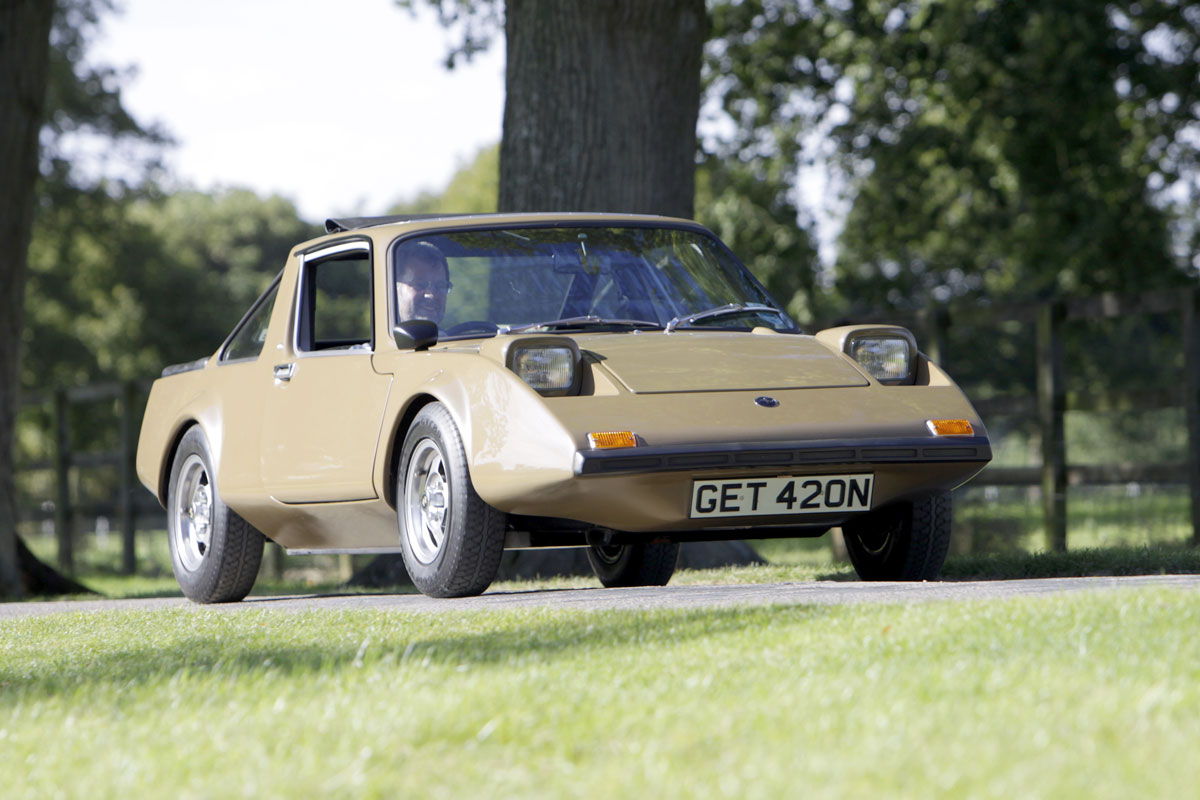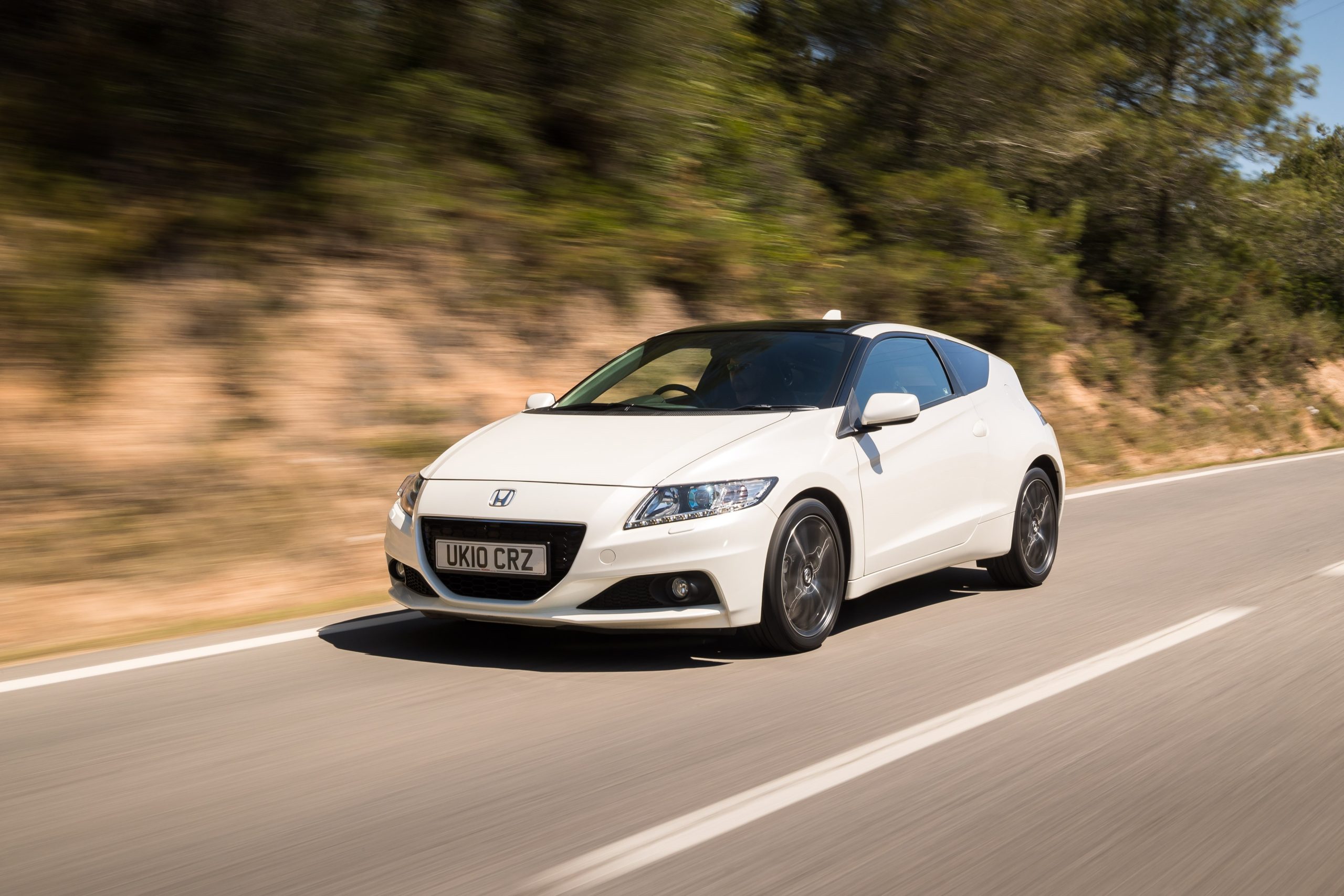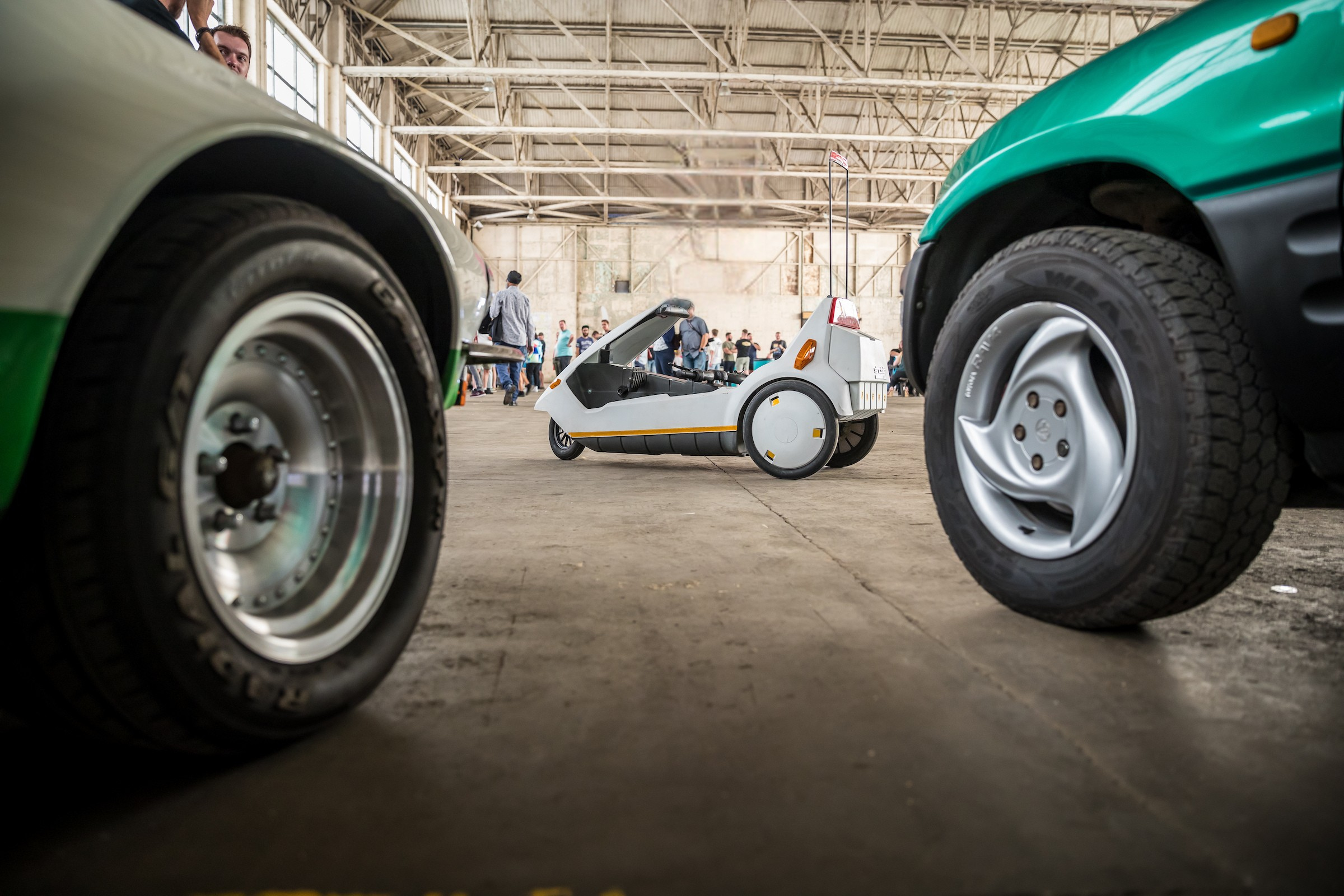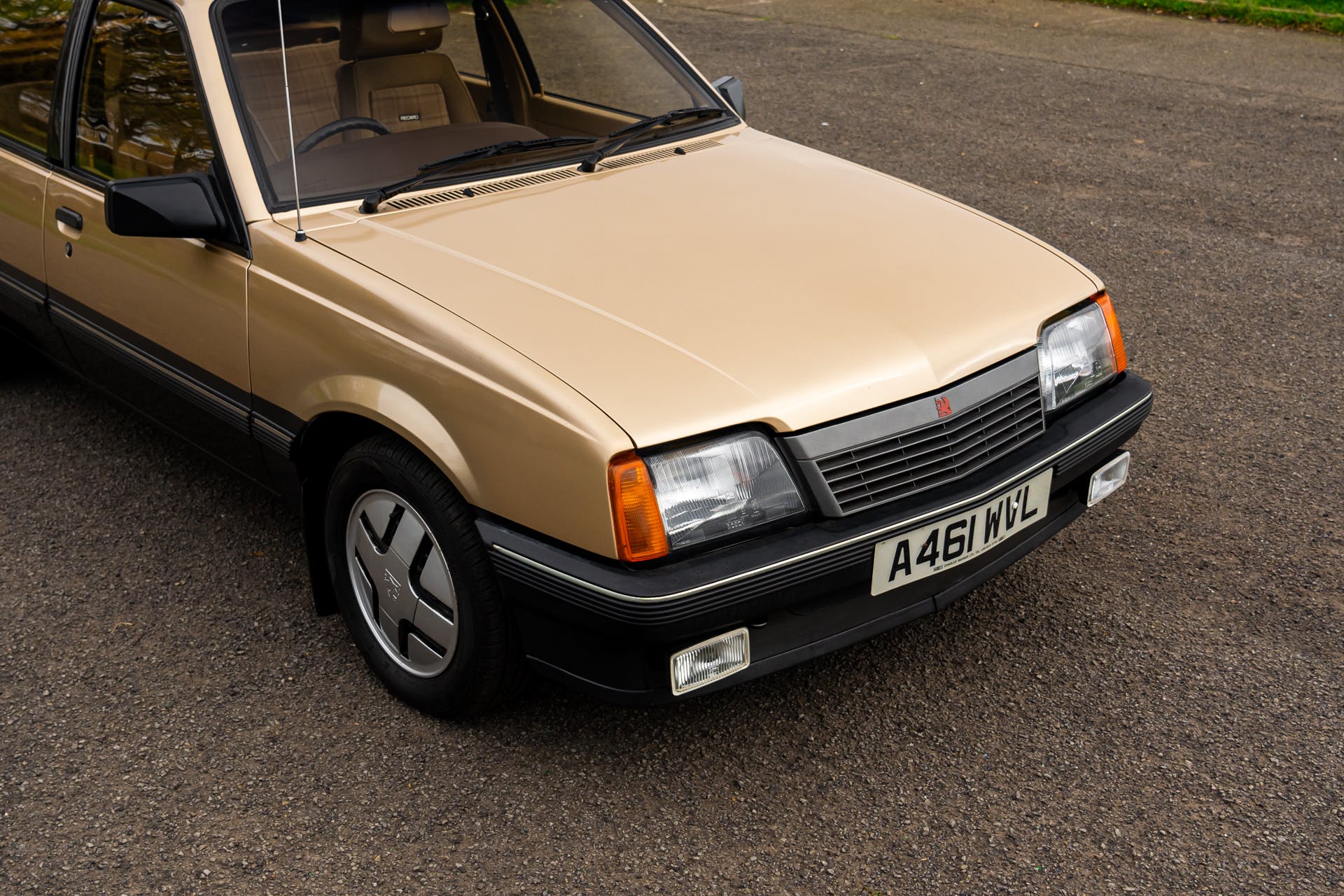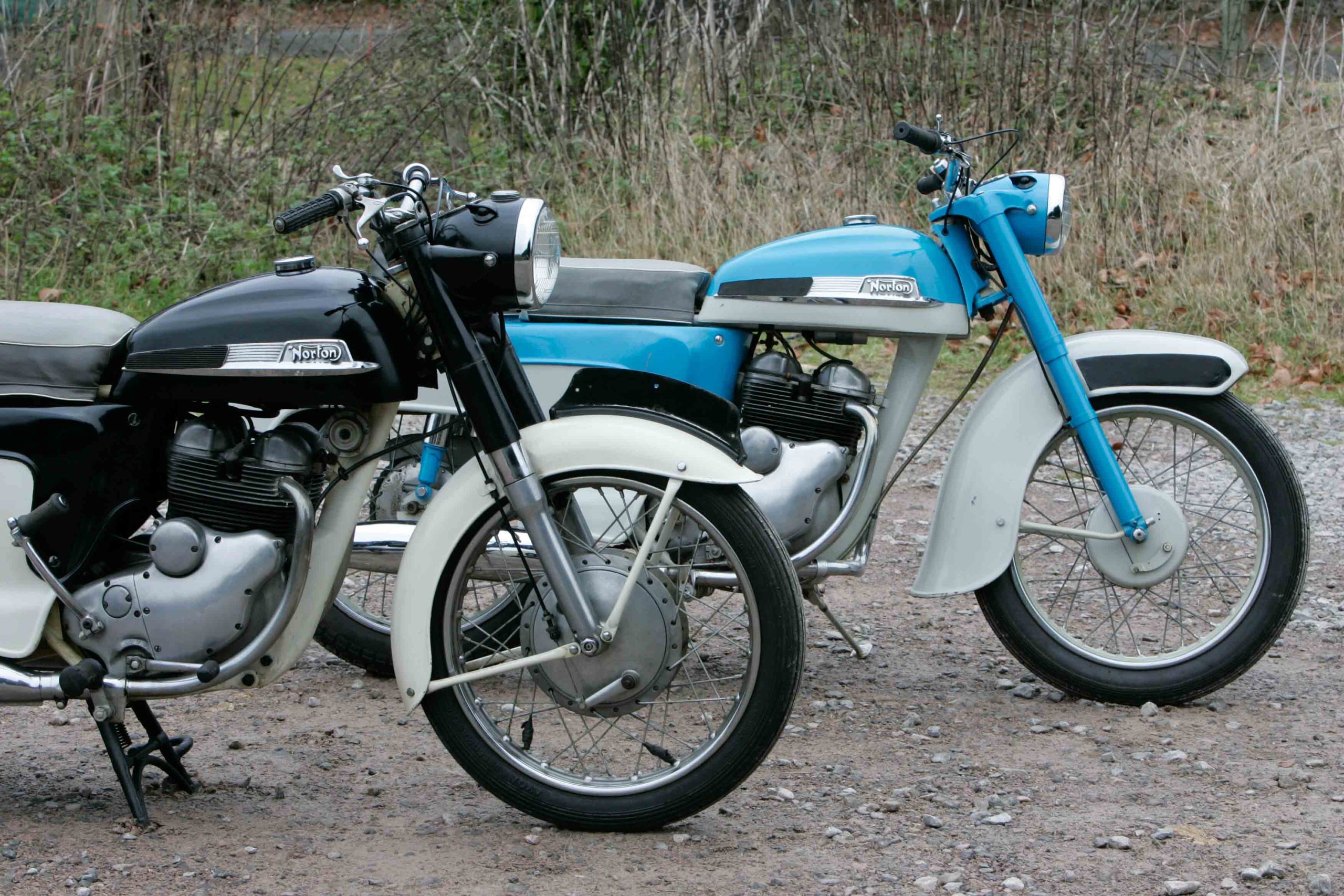When the stories about the McLaren Speedtail start to filter out, as they will over time, you’re going to read a lot about how fast it is. Perhaps that shouldn’t be surprising, given that once its traction limitations have been overcome, the Speedtail posts a faster 0-186 mph time than a Bugatti Chiron. (13 seconds flat, since you asked.)
Since I remain one of just two journalists to have driven it, and the only one to have done so on a public road, let me tell you: this is a car with plenty of qualities I’d value far beyond its straight-line-speed capability. Had I flung it down a runway rather than guided it across southern England, perhaps my perspective would be different. But I doubt it.

Let’s dispense with the formalities. The Speedtail is a carbon-tub, mid-engine two seater, featuring a twin turbo V8 motor driving the rear wheels alone via a seven-speed dual-clutch gearbox. Yes, you could say the same about every McLaren produced over the last decade, some of which can now be bought for less money than one of the Speedtail’s pricier paint options. The car itself starts at roughly £1.8 million, and all 106 planned examples have found a buyer.
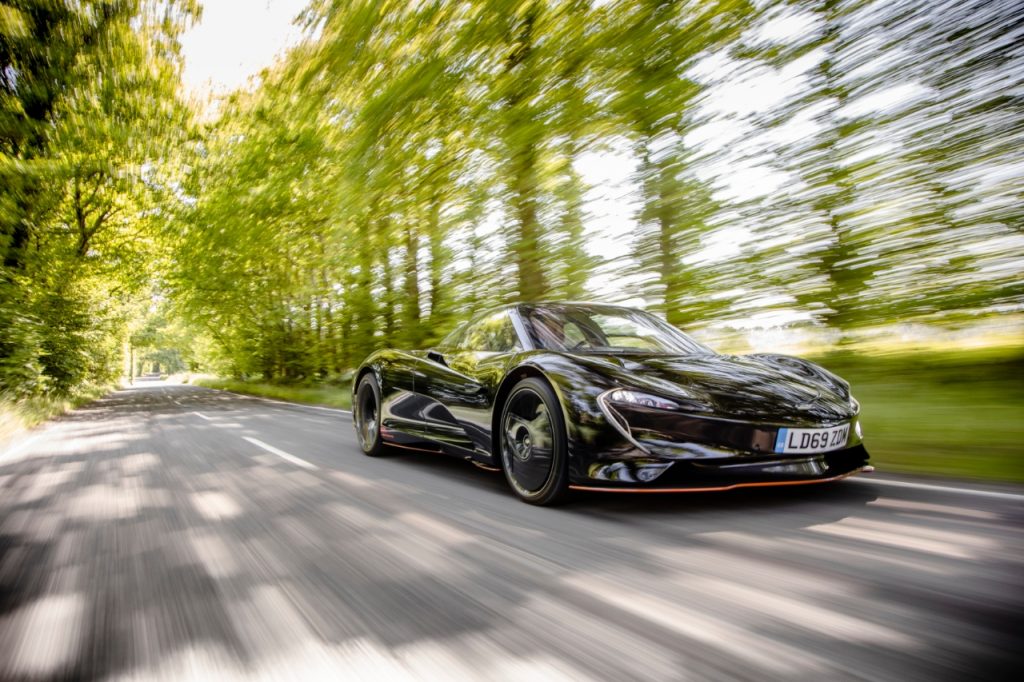
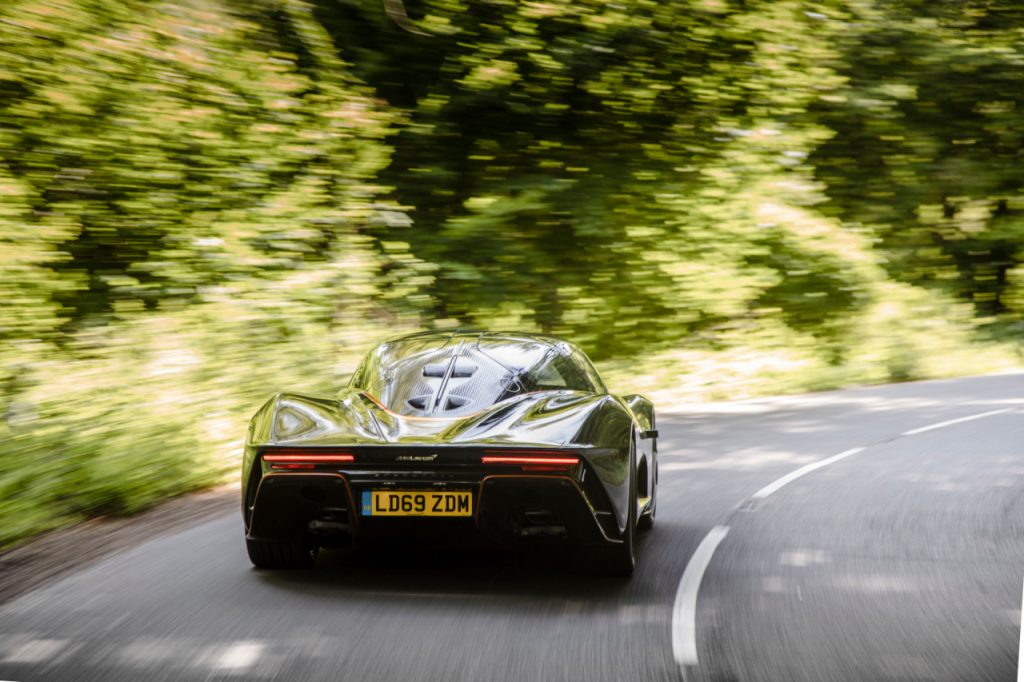
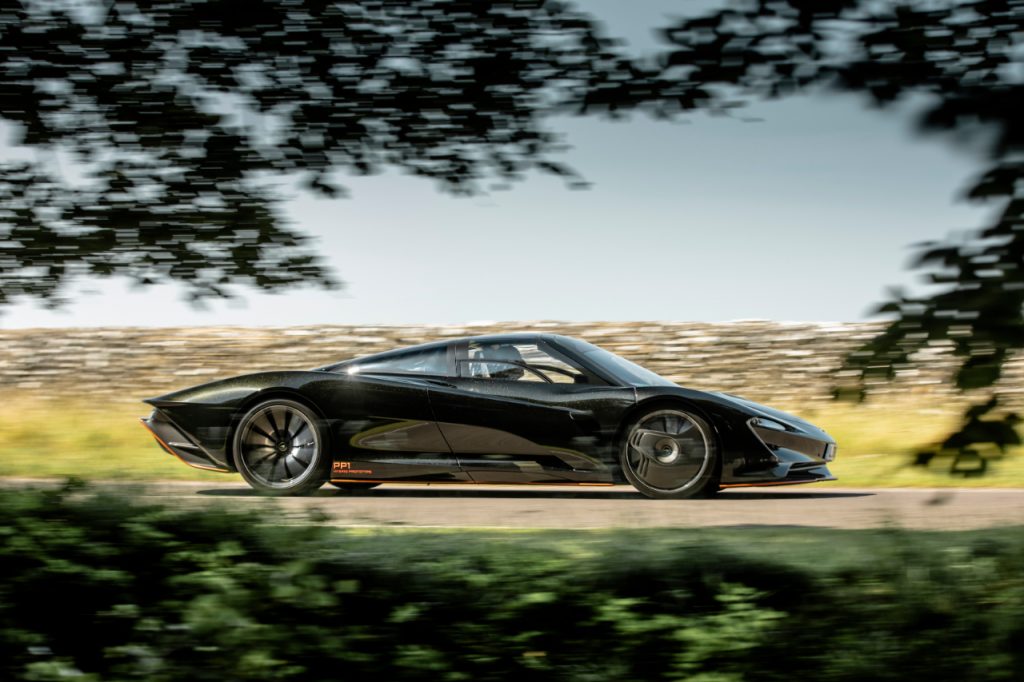
This machine is, however, anything but the re-stirring of a soup now cold and old, and you don’t need to understand anything about its 1022bhp hybrid drive powertrain to appreciate the Speedtail. You need not to do much more than look at it. The Speedtail is over 1.5 feet longer than a 720S. To these eyes, that body is achingly beautiful. The way it visually places the driver so far forward with that tail streaming out behind it reminds me of sports racing cars from 50 years back, when aero engineers were still more preoccupied with avoiding the air than exploiting it.
Look inside. Many of you will be familiar with centre-seat driving positions, even if only from a local kart track. It feels the most natural thing in the world there, and so it is here, only perhaps to a greater degree. Sit with the middle of the windshield dead ahead, always the same angle and distance from an apex regardless of whether it turns to the left or right, and you’ll at once recall the essential rightness of the configuration. It is, of course, not a new dimension in the driving experience given that the McLaren F1 got there first, nearly three decades ago. Unlike the F1 however, it is easy both to enter and exit the Speedtail’s center seat, though tall passengers will find space for their inboard shoulder somewhat limited if the driver has the seat all the way back.
The instrumentation is a new level for McLaren, and I hope more than I can say that the setup trickles down to the brand’s less utterly unaffordable models. There are just three screens: driving data ahead flanked by navigation to one side and entertainment on the other. There are buttons, but none where you can see them. The presentation is simple, clear, and beautiful.
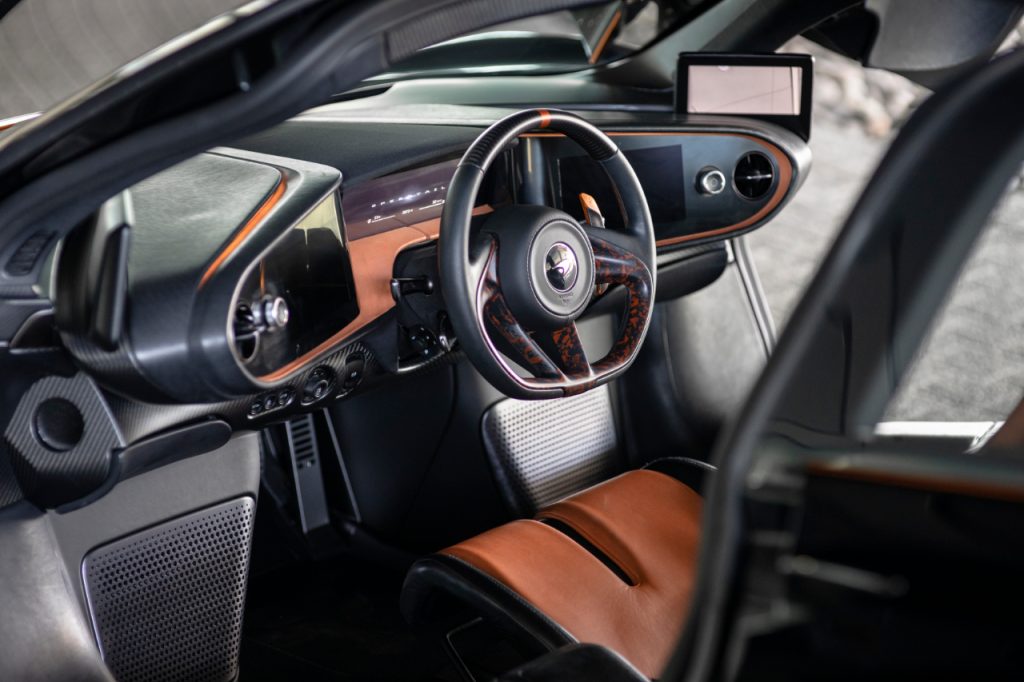
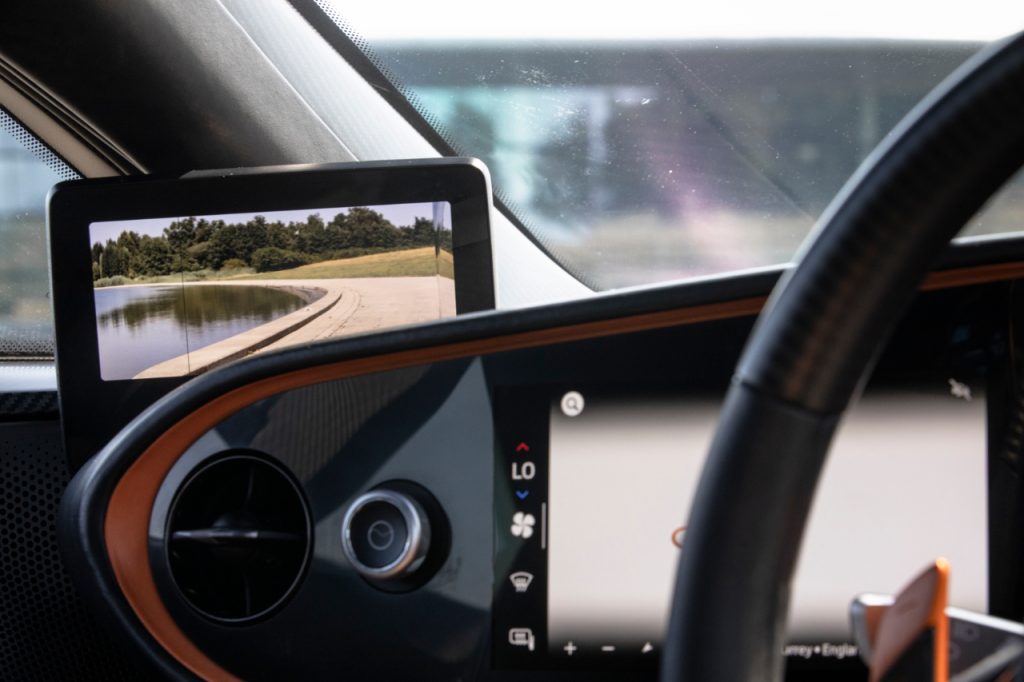
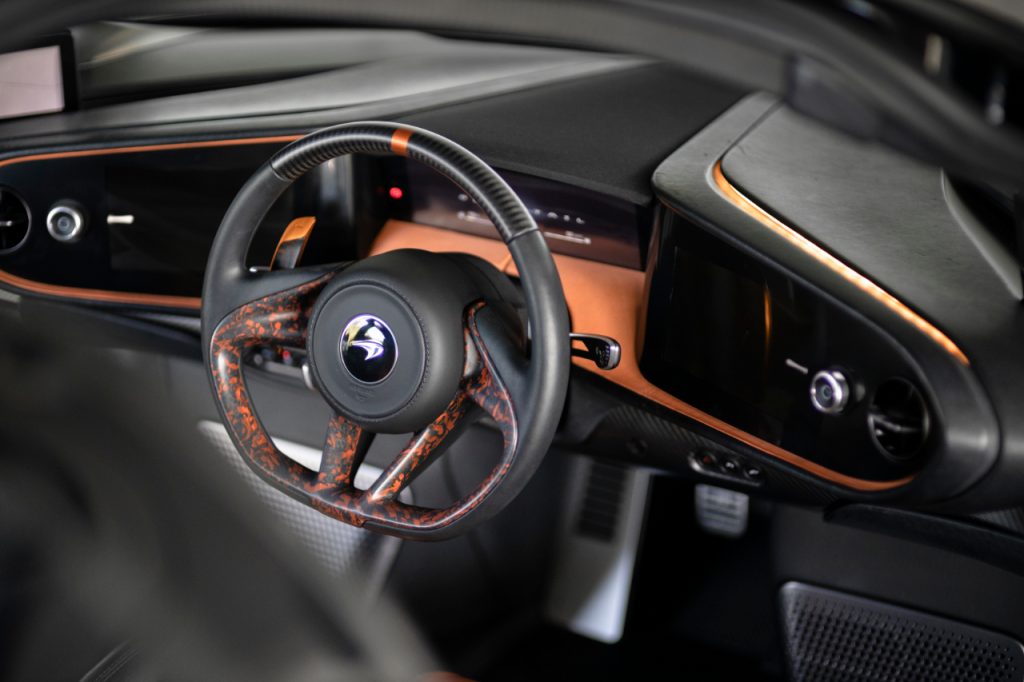
To start it, you push a button in the headlining. The disappointment is almost instant. I don’t mind that, unlike its P1 predecessor, the Speedtail won’t run on electricity alone, but given that this is meant to be McLaren’s longest-legged, most sophisticated cruise missile, the sound of the same old rough-and-tough flat plane V8 is not what you want to hear. It’s fine in a Senna, a 600LT, or even a 720S, but don’t tell me a V12 would not do this job better, because it would and, in the F1, it did.
The Speedtail is, however, beautiful to drive, even slowly. The ride is exquisite, the throttle response flawless. As speeds rise and you start to work it a bit, you realise something else too: it’s light. When the choice is lightness or power, I’d choose lightness every time, because power just helps you gain speed, while lightness will slow and turn you around better, too. The steering is quite low geared so there’s no aggression or nervousness as you come off centre. Feel floods your fingers as confidence floods your brain.
Confidence enough to stretch its legs in public? Perhaps. Initially this McLaren doesn’t feel any quicker than, say, a 720S. That’s because, first, a 720S is still apocalyptically fast, and second, the electronics are holding the tires absolutely at the limit of their traction. Eventually, however, you’re going fast enough for more than 500bhp to find its way to the street surface through a single patch of rubber just 315 mm (12.4 inches) wide.
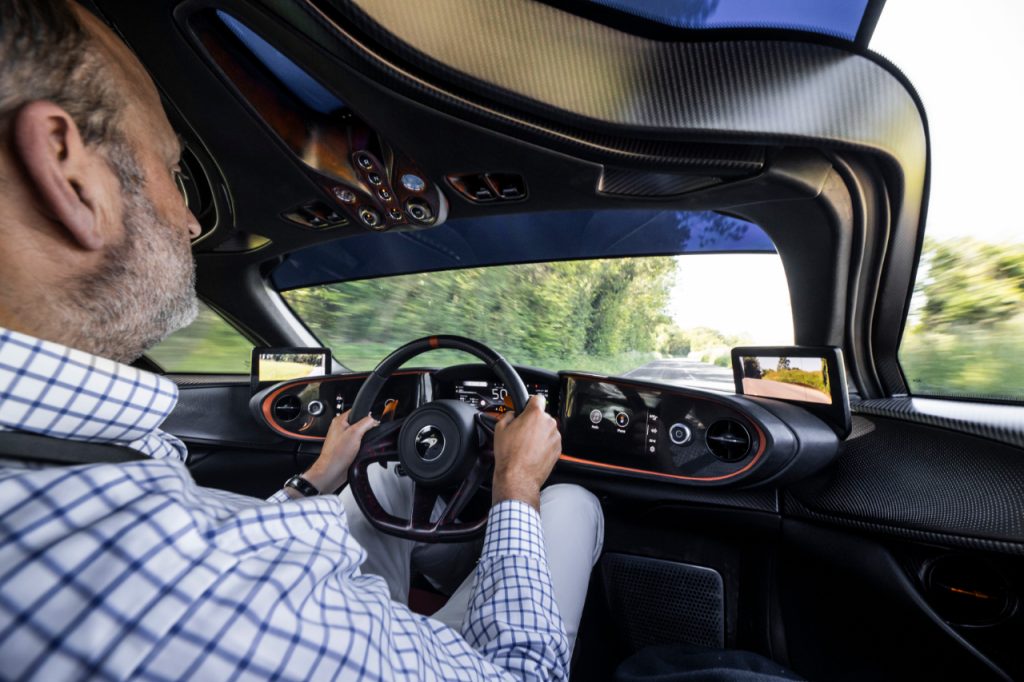
What happens next is bewildering and not a little violent. One speed becomes another without reference to any of the speeds in between. It’s a fascinating experience, but not in the least comfortable even for you, let alone your hapless passengers. Owners will love that this car can perform in such a way, but will they do it themselves on anything approaching a regular basis? I’d put the odds somewhere between “highly doubtful” and “not a chance.”
Indeed the only practical value of such a resource is the knowledge that however fast you want it to accelerate, it can accelerate faster. I can see a certain liberating feeling in that, but I’m far more impressed by the way the Speedtail feels in your hands on a great road. This is what happens when McLaren sets a car up for the road alone. The car seems almost to skim the surface, so well are its body movements controlled. The Speedtail is worthy of planning epic trans-continental journeys, seeking out the greatest drives your country has to offer.
With that in mind, it’s a shame so few will ever see such use. McLaren reckons there are at most five F1s in the world in anything approaching regular use today, and I can see the Speedtail going the same way. I hope to be proven wrong, because in my one day in England I drove the Speedtail hard and fast enough to know what they’d be missing: one of the most sublime driving experiences it has been my pleasure to enjoy. And the fact it has 1000bhp has little, if anything, to do with it.
Read more
Driving the new Bentley Bacalar – a £1.5m plaything for perfect days
Driving the Mercedes 300 SLR “Uhlenhaut coupé” – the world’s most expensive car
Gordon Murray tells Hagerty why his new T.50 hypercar will be better than the McLaren F1

